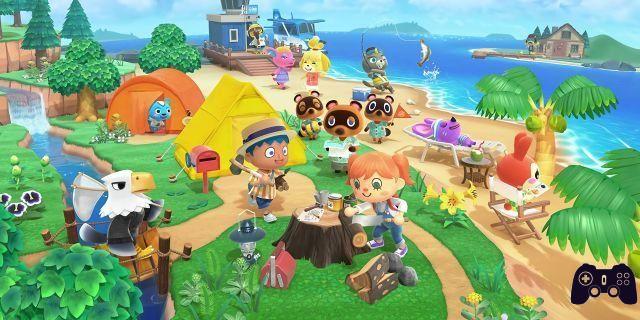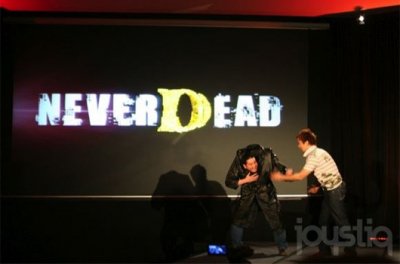Please note:
The solution is based on the American version of the game, so there may be differences from the Spanish version.
Initial hints
As the saying goes "whoever gets off to a good start is already half the battle": it seems trivial, but it is a principle to always keep in mind in Avernum. A particularly effective first round, in fact, reserves several advantages. First, you can immediately eliminate weaker enemies, thus reducing the number of opponents in subsequent rounds, consequently decreasing the amount of damage you could take. Also, you could use the first turn for buffs and debuffs before you get caught up in the fight, when in all likelihood you need healing and healing. Furthermore, again by virtue of what has just been said, in general it is preferable to choose skills that guarantee you a large amount of bonus / malus at once (Mass Healing and Adrenalin Rush, for example) compared to other skills that dilute over time the bonus (Battle Frenzy) or that optimize resources, but provide small advantages (Minor Healing).
Moving on to defense, protection is obviously a very important aspect for any character, but the positions on the battlefield and the distribution of enemies are elements to be taken into consideration when distributing skills and objects. In general, the character in the front row is the one who will tend to absorb the majority of enemy shots, especially in the most crowded contexts or, on the contrary, when the enemies in the surroundings are particularly small. Carefully evaluate the cases in which it is possible to place two characters in an advanced position to divide the enemy attacks between them; in these situations, in any case, you could still rely on a single point man and strengthen the rear, it is up to you to decide what you consider most appropriate depending on the circumstances in which you find yourself. In other battles, however, the type of the opponent - more prone to AoE attacks for example - or the environmental conditions - lack of barriers or walls - will ensure that all your characters are equally exposed to attacks and of course you will not be able to know precisely when similar. situations will arise, so make sure all your characters have suitable defenses, but reserve Parry and High Armor for those who will step on the front rows more frequently. So make sure you have at least one tough character to field in front of the others: a friend with the same characteristics can be useful, but not essential.
As for the offensive phase, however, it is good to consider the potential of each individual character, but it is even better to consider its usefulness within the group. Divide the characters at your disposal into two groups by selecting one for the attack to which entrust the most dangerous skills, the most useful items and the most powerful weapons, while to the other group you will assign only what remains unused.
Also, if you want to take advantage of the tactical advantage conferred by Cloack Spells it is good that you use the same type of attack with all warriors. Of course, you will need at least two or three Spellcasters - characters capable of casting spells. Among the Cloack Spell the most effective is the Cloack of Arcane thanks to the vast Area of Effect on which it spreads its work of destruction. Another element to consider is the different availability of spells and weapons. In fact, a spell never runs out and can be used by all the mages in your group, unlike the best weapons which are quite rare and can be wielded by only one warrior. In practice it is impossible to have two high-level warriors both equipped with weapons and objects of the same level, inevitably one of the two will have to settle for weaker tools.
Continuing to talk about offensive tools, double-handed swords are the best choice in any situation: they do up to 60% more damage than other weapons and their effectiveness increases exponentially as they level up. Slightly below on the level of strength we find the rods and shields, certainly useful tools, but inferior to swords and therefore often relegated to makeshift choices. Finally, the bow needs several upgrades - such as the Divinely Touch - to become a weapon worthy of some consideration within the game. In general, rely on the bow as a last, last resort in cases where you have nothing else left with which to hit the enemy, otherwise any other weapon is preferable.
Taking into account the 4-stat system with which the use of weapons in the game is administered, it is essentially useless to have a secondary weapon that would prove, in fact, useless. The only exception is the few abilities that don't benefit from the 4-stat system, the list of which boils down to Adrenalin Rush and healing spells. In all other cases, it is much better to rely on magic or melee.
A little economics
As you will learn soon in the course of the game, the economic resources are rather limited in the world of Avernum, unlike the ways to spend the hard-earned gold. With this in mind, you will need to give top priority to the most important spells. On the one hand, it's true that learning higher-level spells will prove expensive - which is why you probably can't afford more than two spellcasters - but the benefits of using them will make a difference over the course of the game. Right after the spells, the skills come in order of importance. It may sound silly, but the cheaper skills deserve precedence: a +1 is still a plus +1, beyond the skill. Beyond these, then focus on the skills you want to raise because you consider them more important in your style of play. Last in the ranking are the most expensive skills, but not excessively useful for your purposes. Finally, avoid spending money unnecessarily by purchasing minor spells. The only exception to what has just been said can be represented by some of the rare useful items that you will come across in the course of the game.
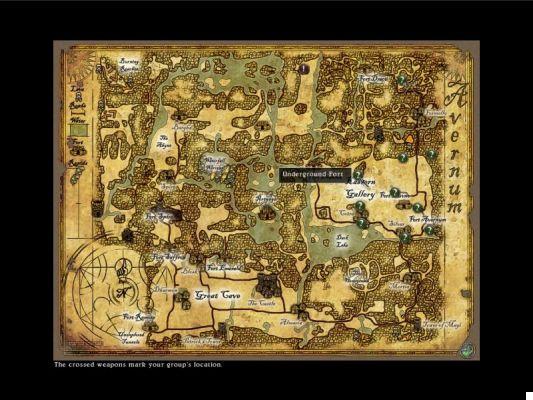
Basically, every choice to be made must be evaluated according to an economic mentality by evaluating in depth the pros and cons. For example, never underestimate the penalties associated with the pieces of equipment you are about to buy, on the other hand, keep in high regard all those objects that you can use right away without necessarily having to gain a level in some skill.
In conclusion, in the individual characters try to achieve a good balance between the ability to resist damage and the ability to cause damage to enemies, also making sure that the characters in the front position can have the Adrenaline Rush. Broadening the point of view to the whole party, equip yourself with a couple of melee fighters and a couple of spellcasters (at least a mage and a priest if you can't afford a third character in this role). Finally, during the game make sure not to neglect the skills related to Lore (Arcane Lore, Tool Use and Cave Lore).
First: don't take them
As mentioned above, in Avernum it is particularly important to build characters who can fiercely resist enemy attacks. Let's start with HP: you start the game with 20 points of HP and earn another 5 for each level earned and for each point of Endurance added. At the beginning of the game, therefore, the Endurance will have a significant impact on your state of health and will guarantee you greater chances of survival, while in the final stages it will be less useful. It is advisable to assign at least a handful of points - let's say 5 or 6 - to the Endurance, this will guarantee you not only greater chances of survival in the early stages, but also much more solid characters later in the adventure. The influence of Endurance on your chance of survival hovers around 2,5% for each point purchased, making it the most important defensive skill, as long as you upgrade it in the early stages.
Of course, there are many other skills to consider on the defensive side. First of all the Hardiness, which guarantees a + 3% resistance to any type of damage per point. Resistance increases all resistance parameters by 3% (excluding those of armor) as well as improving mental Resistance and any type of Curse. In spite of the name, Luck does not rely on luck, but improves all resistances by 1% for each point purchased. Another rather important defensive element is the parry: each Parry point purchased increases the probability of parrying a physical attack by 3%, ideal for physical characters on the front line. Evasion, on the other hand, is one of those skills that are essentially useless due to the inability to use it against bosses and on normal difficulty.
We will talk about Traits later, but before closing this section there are other aspects that deserve a brief study.
Armor is a pivotal element of the game and the game world is full of them, so if those in your possession do not satisfy you, keep looking at least until you can also dress your mages with armor without penalties.
For the Mental Resistance we must instead advance a clarification: the spellcasters can increase it autonomously thanks to the increase in Intelligence, while for the physical characters this must be increased through the use of objects and it is definitely advisable to do so. Finally, among the buffs, the usefulness of the Bladeshield should be emphasized, which will allow you to block 30% of each type of attack, proving essential for the characters destined to tread the front rows.
Offense is the best defense
Let's start with the objects. There are two objects of particular importance on the offensive level. The Spectral Falchion which guarantees a +8 in Blademaster, which translates into a 24% increase in the effectiveness of the weapons and the Flaming Sword, which accompanies each damage die a bonus fire. The combination of these two objects guarantees a damage bonus to both swords that the character wields, to be combined with the fire bonus producing a particularly effective result. Of course, this bonus can be further increased by other bonuses, such as Critical Hit or Blademaster.
Among the offensive skills to be taken into consideration most we must start from Strength which provides +1 to the damage die and a + 5% hit per point. Similar but less effective is the Melee Weapons which also provides +1 damage die in addition to a simple + 1% hit.
Other skills not to be overlooked are Blademaster, Dual Wierlding, and Lethal Blow. Let's start with the first: Blademaster improves damage by 3% and increases hit by 1%. Dual Wielding, on the other hand, improves both damage and hit by 2%, but requires the use of Quick Action at the same time, which makes it less convenient. Lethal Blow also requires Quick Action, but increases the chance of scoring critical hits by 5%, while increasing damage by 3/4%.
Finally, a few words about buffs. War Chant is a must have thanks to the 10% increase in damage. Haste instead grants an extra attack every 3 turns on average. At level 3 it also adds another bonus, the Battle Fury, which doubles the effects of each attack. Finally, Cloak of Blades - which increases damage up to almost 40% - can be a good choice if you can't afford the Cloak of Arcane.
Power of magic
For the magical characters do not neglect the enhancement of the Intelligence which guarantees a +1 damage die and a plus 5% of hit. Mage / Priest Spells are useful up to at least level 16 thanks to +1 damage die and + 1% hit; You probably won't feel the need to upgrade them beyond level 17, especially if you're not a big fan of Vengeful Shade.
Spellcraft are equally effective with its +2 to damage and the Elementary Mastery Traits among the buffs is practically fundamental, especially if your party includes more than one spellcaster, the Cloak of Arcane thanks to the boost from 20% to 40% of the damage dealt by magic attacks.
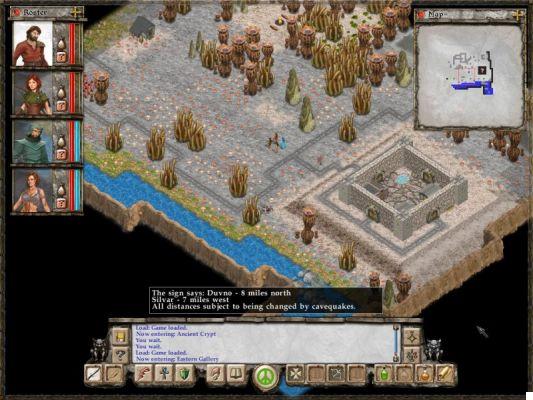
As for the pieces of equipment there are several that enhance the magical potential of the character wearing them, but almost none of these extend their influence to the companions in the party as well.
Finally, a few words should be spent on the difference between mage and priest. Of course, both classes are important, but in a ranking of usefulness and effectiveness, mages are preferable in the game, thanks to the greater contribution of damge that their spells can bring and, above all, to the greater number of enemies that can be hit by the their Area of Effect spells. In fact, priests have only one AoE spell which is also quite powerful, but it can only be used if the priest is the last player of the turn due to the unpleasant contraindication that causes all the characters involved in its range to fall to the ground. action. For these reasons, if you want to limit your party to two spellcasters it is good that you side by side a mage and a priest, but if you want to be able to count on three spellcasters it is preferable to opt for two mages and a priest rather than the other way around.
Traits
Negotiator: to use it you must have reached at least level 8. Its use guarantees you an increased profit of about 10% during trading. This is a not particularly high profit margin if evaluated on a single transaction, but which translates into a fair amount over the long term that will allow you to purchase more items and spells. As far as possible, try not to sell any superfluous items before reaching level 8.
Sage Lore: to use it you must have reached at least level 12. It is basically equivalent to 3 points of Arcane Lore.
Elemental Focus (x5): this trait has the same effect on spellcasters as the Blademaster on fighters. In fact it is very similar to Spellcraft, but in practice it is preferable to it in terms of damage related to spells.
Improved Intelligence (x5): increases both the hit and the damage of spells. Great especially for enhancing Area of Effect spells.
Good Health | Robust Health | Perfect Health: increase the amount of damage you will be able to take by 5%, 4% and 3%. Great choice for improving your defenses. However, note that Robust Health can only be used after reaching level 10, while Perfect Health can only be used from level 20.
Parry Master: to use it you must have reached at least level 8. Improve parade, great for characters in the front lines.
Ambidextrous | Dual Blade Mastery: to use the first you must have reached at least level 5, for the second level 15. Ambidextrous is probably the most useful, it gives better bonuses than the Blademaster or Dual Wielding and is available from the earliest stages of the game when you need it badly. of help on the offensive level. The Dual Blade Mastery, on the other hand, is less effective, probably because around level 15 you will need less offensive boosts.
Mighty Blows (x3): similar to the Blademaster.
Improved Strenght (x5): as the name suggests, it enhances your offensive potential. Excellent especially in the early stages of the game.
Improved Endurance: Increase your HP amount by 5 points. Obviously, its effectiveness depends on when you decide to use it: at level 1 you will certainly feel a marked improvement in your health, at level 30 you might barely notice it.
Nimbel Fingers (x2): improve your Tool Use. It is doubly useful because it releases a skill point that you can use elsewhere.
Backstab (x3): potentially very useful, in practice the effort of finding a position to backstab from cancels the 15% bonus you get. If you have two warriors in the party, however, you could easily think about it because you will end up using it often at least in the clashes that see you facing particularly difficult bosses.
Good Fortune | Great Fortune: to use the first you must have reached at least level 8, for the second level 16. It improves the statistics of the Luck and guarantees you a 1% improvement against any type of attack. These are not the two best defensive skills around, but they can still be useful.
Recovery: to use it you must have reached at least level 5. It is essentially equivalent to 2 points of Quick Action, even if it does not provide boost. Not a first choice on the list of the most useful traits, but equally a resource to be used in longer battles.
Blessing Focus (x5): increases the duration of the bonuses on the status effects, It becomes especially useful in the final stages of the game when it can guarantee you an extra turn in the most difficult battles without the need to resort to buffs insistently. In practice it is quite similar to recovery, but it occupies a greater number of trait slots. If you decide to use it, use it on a priest.
Item
Generally you will find during the adventure all the objects you need without the need to buy them. You can of course still buy the items you feel the need for at a well-defined time, but you will soon end up finding equivalent - or even better - items on the ground to replace them with. The only exception to this rule is represented by the Reflective Pants - which offer a very useful + 10% in Curse Resistance - and which can only be purchased from two specific merchants, one is located near Formello and the other in the Tower of Magi. At first glance, this garment doesn't seem anything special, there are in fact other garments that guarantee better Armor and additional bonuses; however, these all carry penalties as side effects of which the Reflective Pants are free. Curse Resistance is also a rare bonus, but also particularly useful, so don't miss the chance to buy Reflective pants when possible and assign them to your spellcaster - or to each of yours, in case you have more than one in the party - and with all likelihood you'll find yourself using them until the end of the game. Instead, avoid spending money unnecessarily investing in Wisdom Crystal, or other ingredients that are used to create them such as Mandrake. In fact, initially they may seem like a great way to convert gold into XP, but as the game progresses you will realize that those 200 XP contribute less and less to the achievement of the skill point and, as if this were not enough, are applied to only one character. If you want to invest your money wisely, resort to training.
Skill
Melee Weapons: it is the most desired basic skill because it is used to obtain the Adrenaline Rush and the Bladeshield. It brings with it an improvement in melee damage and to-hit, as well as unlocking numerous other skills with its purchase. In practice it represents the skill connected to the most basic weapons, there is not much more to add.
Pole Weapons | Bows | Thrown Weapons: there is not much to say about these skills, they serve almost exclusively to reach the Adrenalin Rush.
Hardiness: for each point it grants a very useful + 3% in protection against all types of damage. It is a very useful skill for any type of character regardless of class, role and position in battle. It maximizes its effectiveness at level 12, but in any case you will thank the moment you purchase it for the duration of the adventure.
Parry: skill with a less universal value than Hardiness, but equally useful, especially for those characters particularly subject to enemy blows. For each point, the chances of blocking a melee attack are increased by 3%.
Blademaster: the best skill to increase the effectiveness of your attacks. Each point increases by 3% to the melee damage multiplier and 1% to the to-hit. The description of the skill in the game has an error: it is not true, as it is erroneously reported, that its use increases the fatigue.
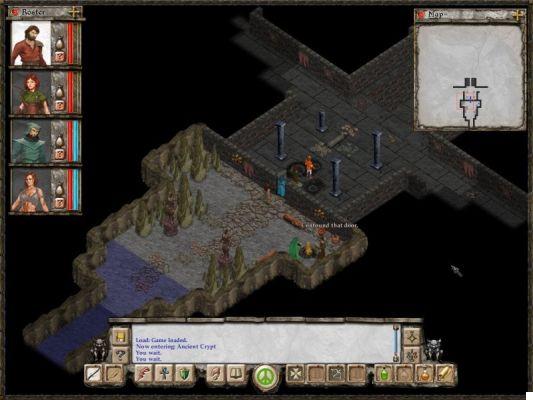
Lethal Blow: excellent skill. Each point increases the chances of scoring a critical hit by 5%, which will multiply the damage dealt by 150%, but only after using the normal multiplier.
Dual Welding: skill useful only in case your character is a dual wielder. Each point adds 2% to the multiplier and 2% to the to-hit. It is a second choice compared to Blademaster and Lethal Blow, but it is still a skill that should not be underestimated.
Mage Spell | Priest Spell: these are two essentially mandatory skills for spellcasters. They also both represent a good opportunity to place any extra skill points.
Spellcraft: adds 2% to the damage done by the spell. On paper this skill may seem less useful than many others, such as Blademaster for example; in reality it is enough to think of the amount of opponents that can end up inside an Area of Effect spell to realize how that 2% of impact on spells has an influence on the action on the playing field far greater than the simple numerical figure suggests.
Resistance: for each point it grants a very useful + 3% in protection against all types of damage. It is a very useful skill for any type of character regardless of class, role and position in battle. It maximizes its effectiveness at level 12, but in any case you will thank the moment you purchase it for the duration of the adventure. As you may have guessed, its effects are quite similar to those of Hardiness.
Those listed above are the skills really necessary to face the game without excessive suffering. Luck is missing from the list, but this can easily be considered as a secondary skill, to be explored only if you find yourself with extra skill points that you don't know where to invest.
In case curiosity pushes you to spend skill points to buy skills not included in the list above, here are some good reasons to think again:
Response: useless on a defensive level, it confers a bonus in attack which, however, is dispensed randomly, cannot be addressed and - even if it occurs - it will still be much lower than you might expect.
Sharpshooter | Sniper: as mentioned at the beginning, the skill with the bow turns out to be substantially useless in the course of the game; Sniper also provides some very meager benefits.
Gymnastic: To acquire this skill you will need a huge amount of money; mockingly, the benefit it provides is also obtainable through other ways, decidedly less expensive and it turns out to be decidedly not very useful once obtained.
Magical Effciciency | First Aid: no use wasting money on a skill that allows you to recover SP. In each city of the game you will find a refreshment point where you can fill the SP bar, and when this is not possible you can easily survive by relying on the numerous potions. SPs can also be easily converted to HP.
Cave Lore: this ability can be of some use only if you decide to devote yourself to grinding Wisdom Crystal for a good part of the game, an activity that I strongly advise against. This is the cheapest skill in the game, but don't expect to make any money out of it. All you could get by using it is a handful of Wisdom Crystals and a few potions of invulnerability, all of which are not worth the money spent on the skill itself. The only positive side is represented by the bonus in protection from poison and acid, but these elements turn out to be quite rare and not excessively dangerous.
The following is a list of skills cataloged according to the minimum price needed to train them:
800 = Arcane Lore
900 = Cave Lore
960 = Bows
960 = Thrown Weapons
960 = Sharpshooter
960 = Gymnastics
960 = Magical Efficiency
1100 = First Aid
1120 = Hardiness
1120 = Resistance
1200 = Parry
1200 = Quick Action
1280 = Melee Weapons
1280 = Pole Weapons
1280 = Mage Spells
1320 = riposte
1440 = Blademaster
1600 = Spellcraft
1600 = Lethal Blow
1980 = Dual Wielding
1980 = Sniper
2200 = Tool Use
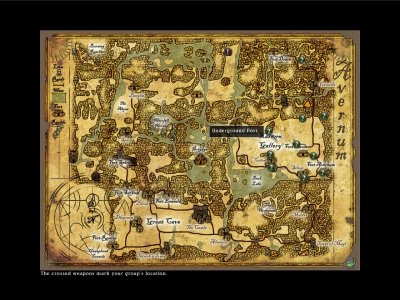 Avernum: Escape From the Pit ipad
Avernum: Escape From the Pit ipad
- ipad
- pc
Exit date: 2012




